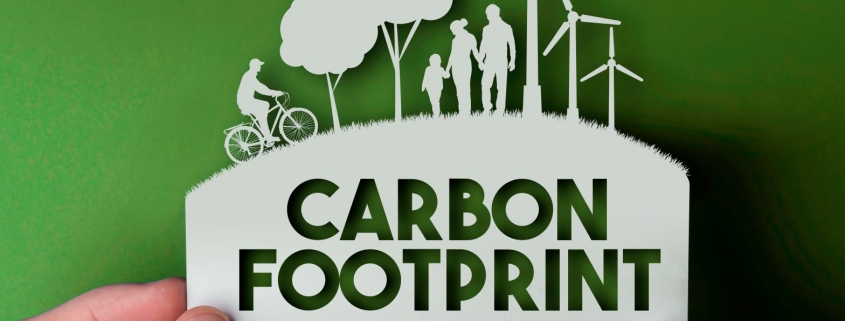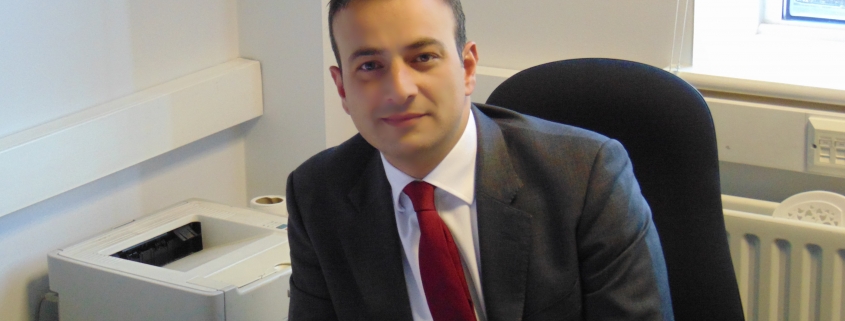5 Ways to Reduce your Business’ Carbon Footprint
In June, the UK became the first major economy to pass a law requiring net-zero emissions by 2050.
So, what steps can be taken to do this effectively?
No matter what size your business is, there are big and small changes that can be implemented to help the UK reaches its 2050 target.
Here are 5 ways to reduce your Business’ carbon footprint:
1. Waste Management
Zero waste is more than just a buzzword nowadays, instead, it’s become something a lot of people strive towards. Ultimately, it’s clear that cutting out waste would definitely go a long way in helping the environment, and there are a number of things that can be put in place to begin doing this. Bear in mind it’s not feasible to go completely zero waste all in one go, but businesses can gradually reduce their production of landfill rubbish by dealing with waste in a more environmentally responsible way.
Recycling is a great green initiative, but it’s only really effective when there’s a good scheme and system in place. Starting with basic paper and card rubbish, arguably the most visible of office waste, and then moving into other materials, is more effective than dealing with everything in one go. With this in place, it’s simply a question of having well labelled and visible bins.
However, reducing and reusing are ultimately the most effective steps for a business who wants to become zero waste. Plastic waste often finds itself at the forefront of discussions surrounding climate change, and for good reason. The confusion and difficulties surrounding plastic recycling means we often fail to do it, and consequently, only 9% of plastic is recycled. This is why we’re seeing more initiatives encouraging the ban (or at least the severe reduction) of single-use plastic – something businesses can easily support too. If your office has a canteen, phasing out the use of plastic cutlery and straws in favour of metal ones is a simple but effective way to reduce landfill waste. Likewise, encouraging staff to replace disposable plastic bottles with reusable ones is another small but important way of reducing your carbon footprint.
Quills Secure Data Destruction service can support your businesses recycling and waste management strategies. We can review your current arrangements and propose a tailored compliant solution to match your budget, needs and most importantly, environmental targets. Simply click here to find out more.
2. Travel & Transport
Travel and transport are the most talked-about carbon footprint contributors. Travelling for business, particularly flying, is well established to have a substantial impact on the environment. But the good news is, we live in a society with a number of great alternatives available to ensure your business isn’t hindered by distance. Of course, utilising public transport for closer trips is always a good option, but you should also consider video conferencing in place of flying long distances. Not only will this cut down emissions, but you’ll also find it cuts down your company’s travel costs.
That said, when it comes to company transport, there’s quite a lot to consider. Not only are the commutes of your employees an important factor, but it’s also worth looking at the fuel consumption related to the transportation of your company’s goods and services. Green initiatives like cycle-to-work schemes can inspire more eco-friendly methods of staff commuting. At Quills, for example, we use new vans which are all low emission and comply with ULEZ standards. We also plan our delivery routes every day to ensure the lowest cumulative mileage and maximum fuel efficiency. For your outsourcing needs, courier services such as Gophr offer a greener choice with their optimised system of pairing vehicles to deliveries depending on the size and weight of the consignment. A programme like this ensures a large van isn’t used when a bicycle will do, and as such, provides a much eco-friendlier service.
3. Energy
It’s an inconvenient fact, but energy consumption is one of the biggest environmental impactors, particularly for business. Lighting, heating, powering appliances, web hosting – these are all fossil fuel burning activities that can be easily overlooked when it comes to accounting for a company’s carbon footprint. The solution to this doesn’t have to be a complete overhaul in office operations. As the days get darker, proper lighting becomes even more important. Simply switching to more energy-efficient lights with an automatic shutdown or dimmer option is a great solution that will have a lasting impact on your office’s carbon footprint, as well as on your energy bill.
There’s no need for your efforts to stop at lighting changes. In the future, you’ll find increasingly more companies migrating to green web hosting services, like GreenGeeks or DreamHost, who consciously make use of eco-friendly initiatives to lessen their overall environmental impact. By utilising these sorts of options for your web hosting needs, you can start to combat the CO2 emissions of your internet use.
4. Sustainable Supply Chain
A proportion of a business’ carbon emissions is found within its supply chain. Any goods a company purchases – stationery, paper, computers, food etc – all come with a carbon footprint associated with their respective production and delivery. There is no easy way of accounting for the CO2 emissions at every step in the supply chain of every item bought for your office, but more often than not, a business can become greener simply by being eco-conscious and opting for overall more sustainable suppliers.
As a stationery and office supplies supplier, we continuously look for eco-friendly alternative products to provide for our customers. We have recently launched a new environmentally friendly promotional merchandise range which enables businesses to provide exciting and unique branded gifts such as pencils made from recycled money, pens made from CD cases and sustainable cups made from bamboo plant fibres – see the full range here.
5. Plan and Engage
The best way of ensuring the successful implementation of eco-friendly initiatives is by having a comprehensive and feasible plan in place. In order to do this, however, it’s important to know which areas are in need of the biggest improvement. The most logical starting point is to understand how substantial your business’ carbon footprint is right now. By combing through your latest energy and water bills, you should be able to gather a fair picture of your biggest areas of consumption, enabling the setting of realistic targets.
However, a business can only effectively reduce its carbon footprint if it has support from both above and below. This is why engagement is also important. After all, these recommended steps can only be successfully implemented if employees adhere to them. Introducing eco-friendly measures alongside an explanation to your staff as to why these changes are happening, will make them more likely to be effective. Likewise, actually getting your employees involved with going green through competitions or incentives will work wonders in ensuring any green initiatives are respected and followed. It’s important to remember, there’s no need to bombard your company with hundreds of go-green schemes. When properly implemented, even small changes will result in worthwhile reductions to your business’ carbon footprint. For more environmentally friendly tips, head over to Quills eco-tips page.
If you have any questions about Quills recycling or waste management service or would like to receive a free consultation, please don’t hesitate to get in touch at hello@quillsuk.co.uk.






